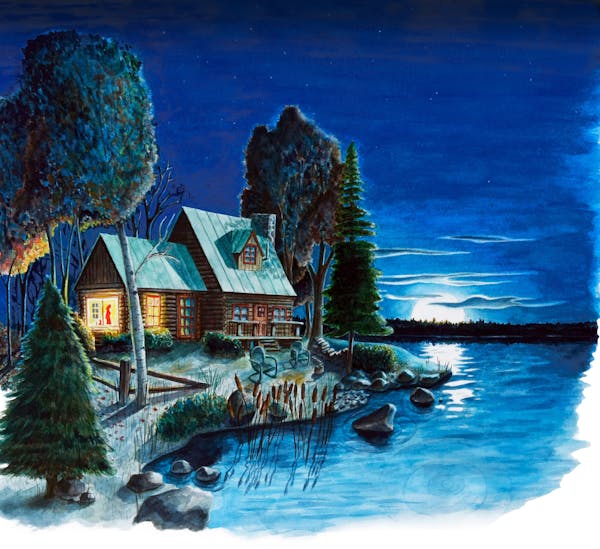This summer, the Star Tribune began a grand experiment that brings newspapers and authors full circle in a relationship that transcends centuries, quite literally.
As a lover of both news and fiction, I've long been intrigued by this historic relationship. As far back as the 1800s, newspapers have serialized novels as a way of both building interest in their own publications and piquing interest for upcoming novels. Charles Dickens published "The Pickwick Papers" in 1836 as serial installments in letterpresses of the day. Nearly 40 years later, Leo Tolstoy's "Anna Karenina" also began as a serial installment.
The digital age, however, opens up a whole new avenue for us with the ease it presents in publishing e-books. We've already explored this with the publication last summer of reporter Curt Brown's special project "In the Footsteps of Little Crow," and with a cookie book.
This year, I wanted to go a step further by partnering with a local author. Given the rich literary environment here, it seemed like it might be a good way for the Star Tribune to strengthen its relationship in the arts community.
Not knowing exactly what I was about to put them through, I asked Laurie Hertzel, our senior editor for books, and Kate Parry, our assistant managing editor for special projects, to develop a proposal to publish an original work of fiction in installments and to simultaneously make it available as an e-book.
They were both interested and slightly aghast, worrying what it would mean if we just opened the floodgates for anyone and everyone to submit an unpublished manuscript. After pondering the challenge, Hertzel suggested that she reach out to key contacts in the publishing community and let them know we were interested in a high-quality unpublished manuscript.
We couldn't take just any type of novel, either. We were unlikely to publish a novel featuring a lot of blood and gore, or steamy sex. "Fifty Shades of Grey" would not go over with the Star Tribune audience. The piece of writing we were seeking also would need to be published easily in short installments.
Parry and Hertzel ended up reading five highly recommended manuscripts before proposing "Giving up the Ghost," by author Mary Logue. The story began appearing last Sunday in the Variety section and will continue daily through July 28. It is also available as an e-book, through the three major digital publishers: Amazon, Apple and Barnes & Noble.
"Giving up the Ghost" was an excellent choice. It is a story of loss, but also one of love and romance, told with humor and wit. It's neither too light nor too heavy for our Variety section, and it's easy to read in short installments. Logue is a local talent and has been writing poetry and books for more than 30 years.
"Mary's manuscript appealed to me right away; it just had all the elements," Hertzel said. "She is such a graceful writer, and even though this is a fairly quiet story — no car chases, no robots, no vampires! — it drew me in and kept me reading, raptly. The mystery of the ghost is deeper and more profound than just a simple ghost story, tied, as it is, with Wendy's grief. And that theme — healing after grief — is one we can all relate to, even as the story itself is fresh and interesting."
Hertzel said she even found herself loving the cat in the story, though we all know her to be a passionate dog lover.
Logue's writing also delivered a powerful sense of home, which appealed to Hertzel and Parry. "There was instant appeal that it had a distinctly Minnesota sense of place," Parry said. "It's set in a cabin in the North Woods, on a lake. Mary Logue did a terrific job capturing Minnesota culture in subtle ways through the book."
Feedback in the first week has been strong and positive, both from readers and from other literary types who embraced the idea of a newspaper's printing a book. Hertzel hosted a live chat on our website last week with Logue; it was well-attended, with more than 500 people online during the chat and afterward.
When I talked with Logue in the middle of this project, she told me that she was deeply concerned about the future of newspapers and was intrigued by the notion of a partnership around books, because she wanted to do her part to keep people engaged and reading. We are indebted to her for her collaboration.
I hope our readers enjoy this experiment, revisiting the roots of newspapers' relationships with original fiction. If it continues to be a success, it may become a Star Tribune summer tradition.
-----
Nancy Barnes is editor and senior vice president of the Star Tribune.
The courage to follow the evidence on transgender care

Republicans wanted a crackdown on Israel's critics. Columbia obliged.


